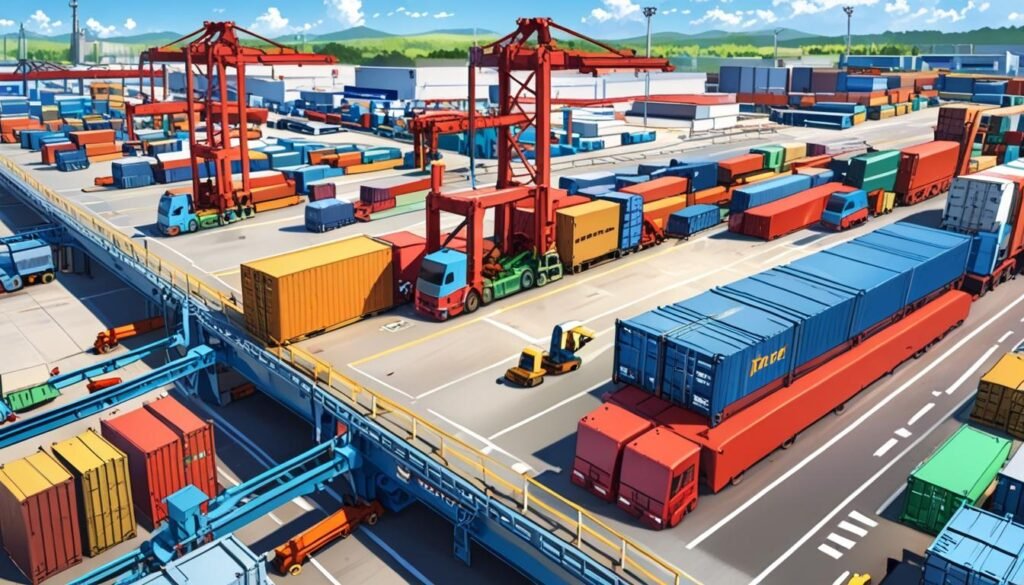**London**: A new report highlights the vital role of effective freight and logistics management in ensuring financial performance for businesses. Companies must adopt robust strategies, consider outsourcing, and utilise technology to meet evolving customer expectations and mitigate costs in a competitive landscape.
In an increasingly competitive business landscape, the management of Freight and Logistics has emerged as a significant factor in determining a company’s financial performance and overall service quality. A recent report from Supply Chain Game Changer highlights the pressing need for businesses, regardless of size, to adopt robust strategies for managing their Freight and Logistics expenditures.
The article cites that Freight spending can account for as much as 1-10% of a company’s total revenue, making it one of the largest expenses for many organisations. Despite this, many businesses operate with minimal oversight, often relying on just one or two individuals to manage these logistics without adequate support from upper management. This lack of visibility and proactive management can lead to inefficiencies that ultimately impact service levels and costs.
For e-commerce businesses, customer expectations are particularly high. These consumers not only anticipate free shipping but also demand rapid delivery options such as same-day or next-day shipping. Logistics problems can lead to performance penalties, especially for companies supporting other industries that rely on Just-In-Time manufacturing practices. Hence, establishing an effective Freight Management strategy is essential.
The article underlines the importance of control over transportation costs and optimising cargo routes through a Transportation Management System (TMS). A TMS can significantly improve logistics performance, enabling companies to manage Freight and Logistics proactively. Key components of a successful Freight Management strategy include a thorough insource or outsource decision, where organisations must assess whether to manage freight internally or engage third-party providers for expertise and cost efficiencies.
Investments in resources and support structures are critical if companies opt to handle freight internally. The article emphasises that without trained personnel and a well-defined strategy, organisations risk overspending and compromising service levels. Among other factors, the design and packaging of products can also lead to unexpected shipping costs if Freight experts are not included in the early decision-making processes.
Additionally, supplier management plays a vital role in Freight efficiency. Many companies operate with numerous carriers, often resulting in a lack of performance monitoring and ineffective delivery systems. Streamlining supplier relationships and consolidating carriers can lead to improved reliability and cost control. The need for performance metrics and negotiated contracts is further emphasised in the article, as companies who do not have structured agreements may overlook valuable savings opportunities.
Another critical aspect highlighted is mode management, which requires a nuanced understanding of transportation options based on the company’s size and geographic dynamics. The article points out that companies often default to more expensive air freight, while less costly methods, such as ocean shipping, could be employed effectively with proper planning.
To achieve end-to-end supply chain visibility, companies must leverage electronic connectivity with their carriers, allowing for real-time tracking and updates without exhaustive communication efforts. This visibility is especially pertinent as customer demands evolve, necessitating swift and accurate deliveries.
Real-time dynamics within the freight and logistics industry, such as strikes or capacity constraints, can influence rates and the overall performance of transportation operations. Companies are urged to remain attuned to industry fluctuations to seamlessly adjust their strategies and mitigate potential disruptions.
The introduction of cloud-based TMS solutions has been highlighted as a modern necessity within this landscape, allowing for improved productivity and decreased manual processes related to invoice management. Furthermore, as environmental concerns grow, companies are encouraged to incorporate sustainability measures into their Freight strategies, aiming to reduce both costs and ecological impact through smarter logistics planning.
In summary, the report from Supply Chain Game Changer asserts that successful Freight Management is not merely a logistical necessity but a strategic imperative in today’s business environment. The choice to manage Freight internally or outsource it must be accompanied by a coherent strategy to ensure companies remain competitive and financially viable.
Source: Noah Wire Services

